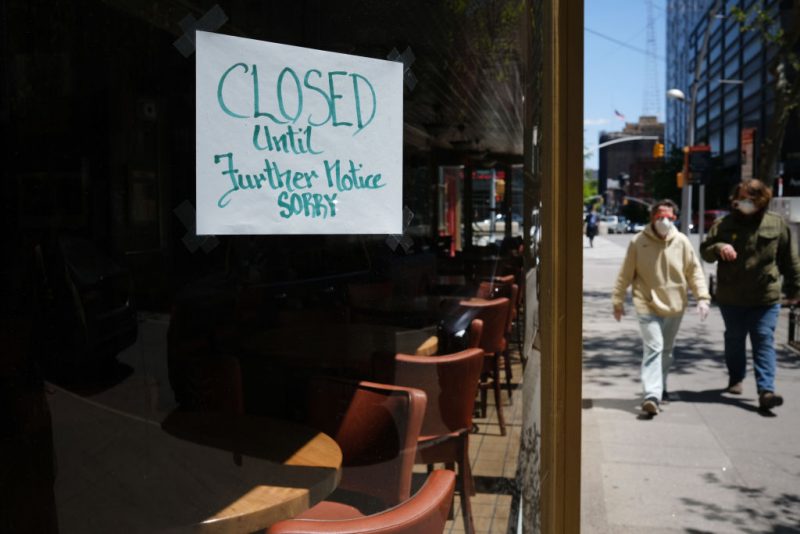
By DaQuawn Bruce
March 24, 2023
(Views expressed by guest commentators may not reflect the views of OAN or its affiliates.)
The federal government’s current priorities are a bad omen for Black and Brown communities.
Recently, the Treasury Department took emergency action to “unwind” two collapsing banks – Silicon Valley Bank in California, which catered to tech entrepreneurs; and Signature Bank in New York, which has been described as “a popular funding source for cryptocurrency companies.”
In other words, they’re banks for coastal elites in New York and Los Angeles. That might explain why the government is moving so swiftly to protect their depositors.
Government officials insist that taxpayers will not be on the hook, because depositors will be made whole using money from fees that banks pay to the FDIC. But what happens if other banks go under in the near future, perhaps after making reckless decisions motivated by the belief that they, too, will be bailed out?
The Biden administration is working overtime to assure the public that bank deposits remain safe, but it’s never a good idea to take politicians’ words at face value.
And what about unbanked Americans? As of last year, about 40 percent of Black Americans and 30 percent of Hispanic Americans were either “underbanked” – meaning they had an account, but still had to rely on costly (and sometimes predatory) services such as payday loans, title loans, or check cashing services – or completely unbanked.
Folks who lack sufficient access to the banking system in the first place are justified in feeling deeply skeptical, if not outright resentful, of political schemes to protect “the banking system” and those it serves, especially if those schemes sound like they might end up costing taxpayer money.
Meanwhile, the Biden administration just released its annual budget proposal, which envisions at 25 percent increase in the corporate tax rate, from 21 percent to 28 percent.
According to former Treasury official Bruce Thompson, more than 1 million of the companies that would be affected by this tax hike are small businesses with receipts below $500,000, and most of them have fewer than 20 employees.
Those are the sorts of businesses that tend to get overlooked by policy makers – especially at the federal level – but they’re absolutely vital to the economic well-being of Black and Brown communities.
Roughly 100,000 Black-owned businesses collectively employ just over 900,000 people – an average of about nine employees per business, putting them firmly in the “very small business” category. But those businesses are often the lifeblood of their communities, and they’re critical to building generational wealth for families that have historically faced far greater obstacles than most.
Just because the politicians aren’t specifically gunning for those businesses, doesn’t mean they won’t get caught in the crossfire. For many Black-owned small businesses, Biden’s tax hike could be the difference between expanding and shutting down forever.
So while politicians devote their attention to bailing out banks that cater to tech firms and cryptocurrency speculators and raising taxes on small businesses to pay for trillions of dollars in recent spending, the little guy – as usual – gets forgotten.
Black and Brown Americans have every reason to be skeptical of what they hear from official Washington these days. Their priorities are most definitely not aligned with our priorities.
DaQuawn Bruce is the executive director of Concerned Communities for America, a 501(c)(3) advocacy group that promotes economic empowerment, public safety, free and fair elections, and quality education for the black community.

